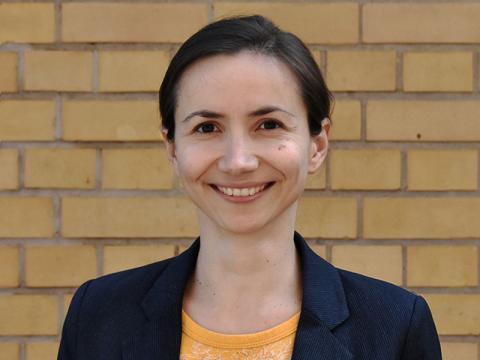Dr. Berger is a professional engineer with over forty years of experience in hydraulics, estuarine processes, navigation effects, high velocity channels, and computational modeling. He is currently a Research Hydraulic Engineer (Emeritus) with the USCE Engineer Research Development Center (ERDC) at the Waterways Experiment Station (WES).
Dr. Berger has primary experience and interest in the modeling of estuaries for salinity intrusion, circulation, and sedimentation. Dr. Berger has developed computational modeling systems for estuaries, rivers, vessel effects, and hydraulic structures. As such, he has research interests in computational techniques in hydraulic environments.
Select Journal Articles
Berger, R. C. 1994. “A Finite Element Model Application to a Study of Circulation and Salinity Intrusion in Galveston Bay, Texas,” Chapter 10, in Finite Elements in Environmental Problems, ed. G. F. Carey, John Wiley & Sons, West Sussex, England
Stockstill, R. L., Martin, S. K., and Berger, R. C. 1995.” A Hydrodynamic Model of Vessel-Generated Currents to Determine the Effects of Navigation,” Regulated Rivers: Research and Management, Vol. 11, 211-225, Nov.
Stockstill, R. L., Berger, R. C., Nece, R. E. 1997. “Two-Dimensional Flow Model for Trapezoidal High-Velocity Channels” ASCE, Journal of Hydraulic Engineering, Vol 123, No. 10, 844-852, October
Berger, R. C. and Carey, G. F. 1998. “A Perturbation Formulation for Free-Surface Flow over Curved Surfaces, Part I: Perturbation Analysis,” Int. J. Num. Meth. Fluids 28: 191-200.
Berger, R. C. and Carey, G. F. 1998. “A Perturbation Formulation for Free-Surface Flow over Curved Surfaces, Part II: Computational Model,” Int. J. Num. Meth. Fluids, 28: 201-213.
Burg, C. O. E., Huddleston, D. H., and Berger, R. C. (2001), “An Efficient, Robust Design Tool for Open-Channel Flow,” ASCE Journal of Hydraulic Engineering, Vol. 127, No. 1, pp. 62-71, January.
Stockstill, R.L. and Berger, R.C. 2001. “Simulating Barge Drawdown and Currents in Channel and Backwater Areas,” ASCE Journal of Waterway, Port, Coastal, and Ocean Engineering, Vol 127 No. 5 (Sep-Oct) 290-298.
Berger, R. C. and Howington, S. E. 2002. “Discrete Fluxes and Mass Balance in Finite Elements,” ASCE Journal of Hydraulic Engineering, Vol 128, No. 1 (Jan) 87-92.
Tate, J. N., Berger, R. C., and Stockstill, R. L. 2006. "Refinement indicators for mesh adaption in shallow-water modeling," ASCE Journal of Hydraulic Engineering, Vol 132, No. 8, pp 854-857.
Savant, G., Berger, C., McAlpin, T. O., and Tate, J. N. 2011. “Efficient Implicit Finite-Element Hydrodynamic Model for Dam and Levee Breach,” ASCE J. Hyd. Eng., Vol. 137, No. 9, 1005-1018, Sep 2011.
Savant, G. and Berger, R. 2012. “Adaptive Time Stepping Operator-Splitting Strategy to Couple Implicit Numerical Hydrodynamic and Water Quality Codes,” ASCE Journal of Environmental Eng., Vol 138, No. 9, pp 979-984, Sep 2012.
Savant, G., Trahan, C. J., Berger, C., McAlpin, J. T., and McAlpin, T. O. 2018. “Refinement Indicator for Dynamic-Mesh Adaption in Three-Dimensional Shallow-Water Equation Modeling,” ASCE J. Hydraul. Eng. 2018, 144(2) : 0617026
Trahan, C.J., Savant, G., Berger, R. C., Farthing, M., McAlpin, T. O., Pettey, L., Choudhary, Dawson, C.N., 2018. "Formulation and application of the adaptive hydraulics three-dimensional shallow water and transport models," J. Comp. Physics, Vol. 374, 1 Dec. 2018, pp. 47-90. https://doi.org/10.1016/j.jcp.2018.04.055
Berger, R. C. and Kiesel, Jens. 2019. “Conceptual Model of Salinity Intrusion by Tidal Trapping,” ASCE Journal of Hydraulic Eng. Vol. 145, Issue 10, July, https://doi.org/10.1061/(ASCE)HY.1943-7900.0001627
Select Reports
Berger, R. C., McAdory, R. T., Martin, W.D. and Schmidt, J. H.“Houston-Galveston Navigation Channels, Texas Project; Report 3, Three-Dimensional Hydrodynamic Model Verification,” Technical Report HL-92-7, USAE WES, Vicksburg, MS. Jul 1995.
Berger, R. C., McAdory, R. T., Schmidt, J. H. and Martin, W.D. “Houston-Galveston Navigation Channels, Texas Project; Report 4, Three-Dimensional Numerical Modeling of Hydrodynamics and Salinity,” Technical Report HL-92-7, USAE WES, Vicksburg, MS. Sep. 1995.
McAnally, W. H. and Berger, R. C. 1996. “Salinity Changes in Pontchartrain Basin Estuary Resulting from Bonnet Carre Freshwater Diversion,” Technical Report CHL-97-2, USAE WES, Vicksburg, MS. Feb 1997
Tate, J. N., and Berger, R. C. (Aug) 2006. “Houston-Galveston Navigation Channel, Texas Project, Navigation Channel Sedimentation Study, Phase 1, ERDC/CHL TR-06-8, U.S. Army Corps of Engineers, Engineer Research and Development Center, Coastal and Hydraulics Laboratory, Vicksburg, MS.
Savant, G., and Berger, C. 2015 (Apr). “Three-Dimensional Shallow Water Adaptive Hydraulics (ADH-SW3) Validation: Galveston Bay Hydrodynamics and Salinity Transport,” ERDC/CHL TR-15-3, U.S. Army Corps of Engineers, Engineer Research and Development Center, Vicksburg, MS.








